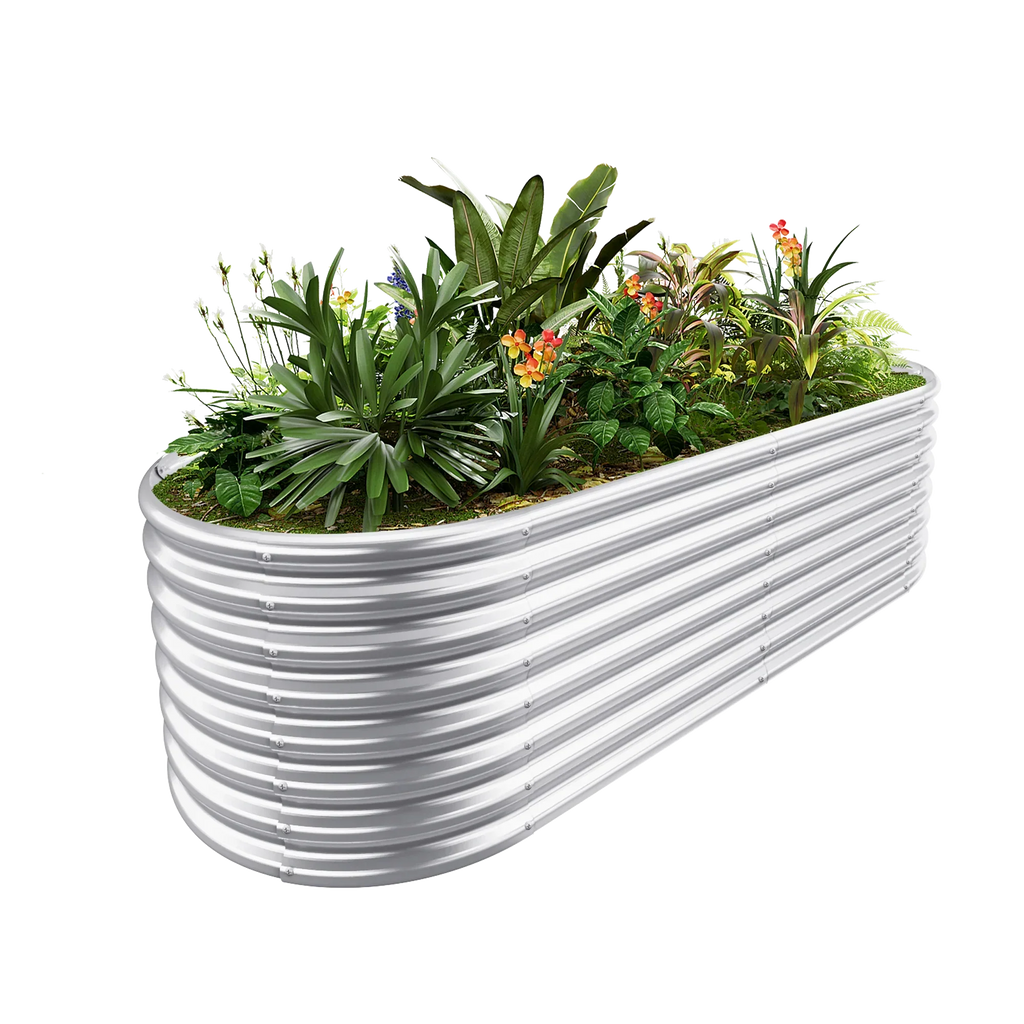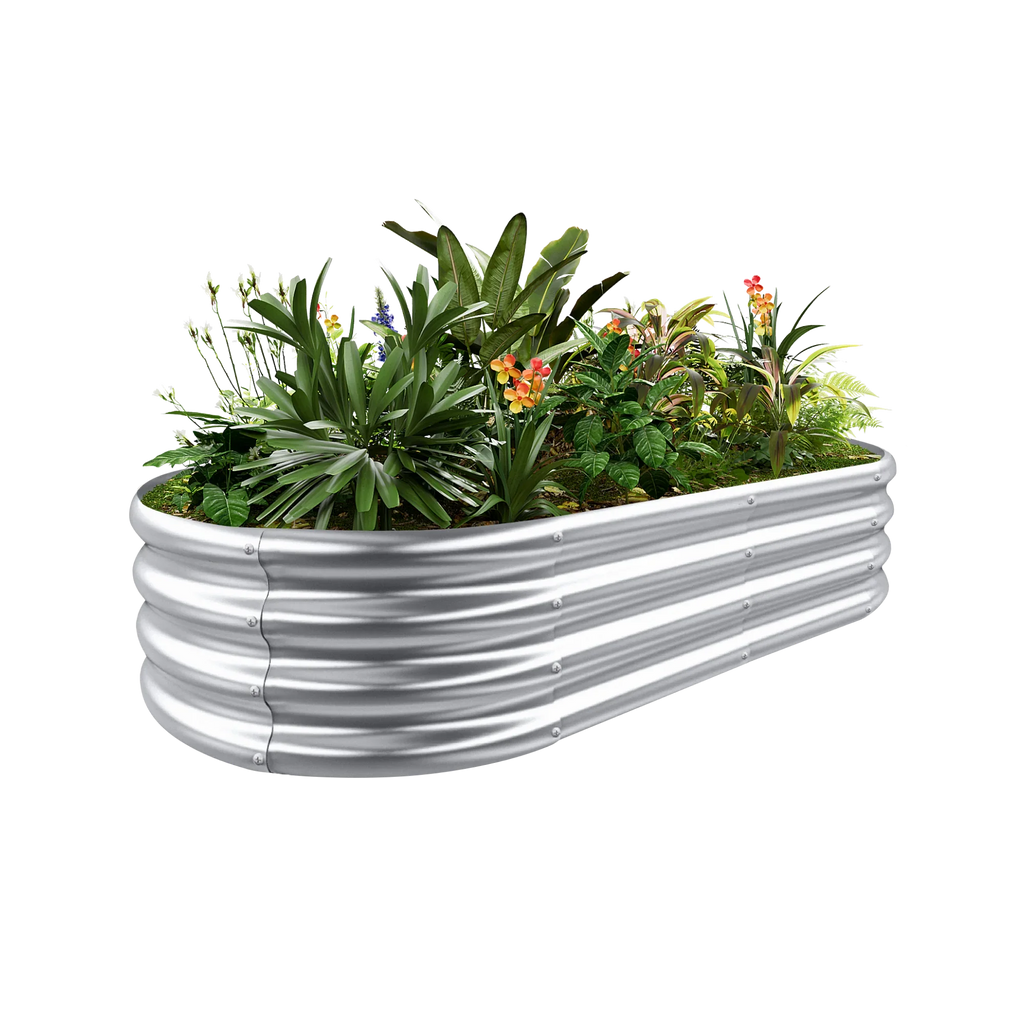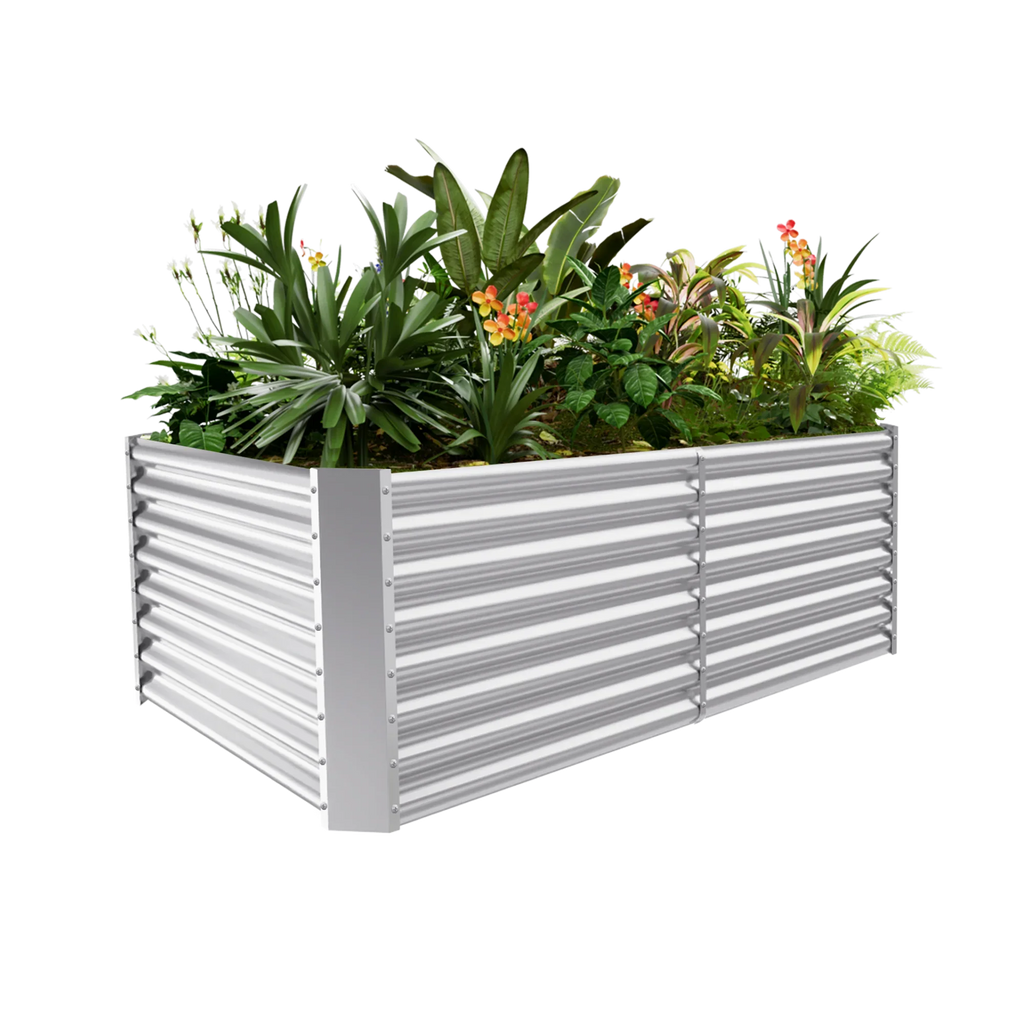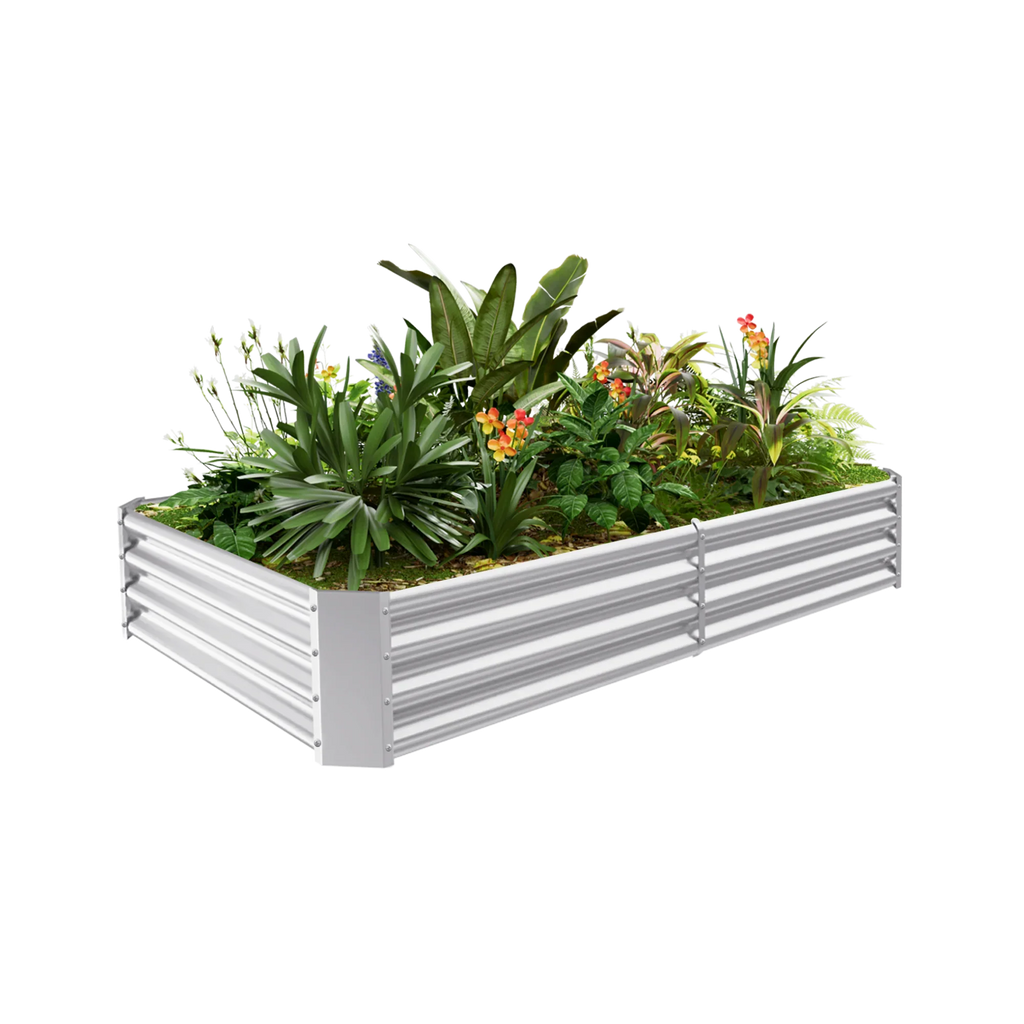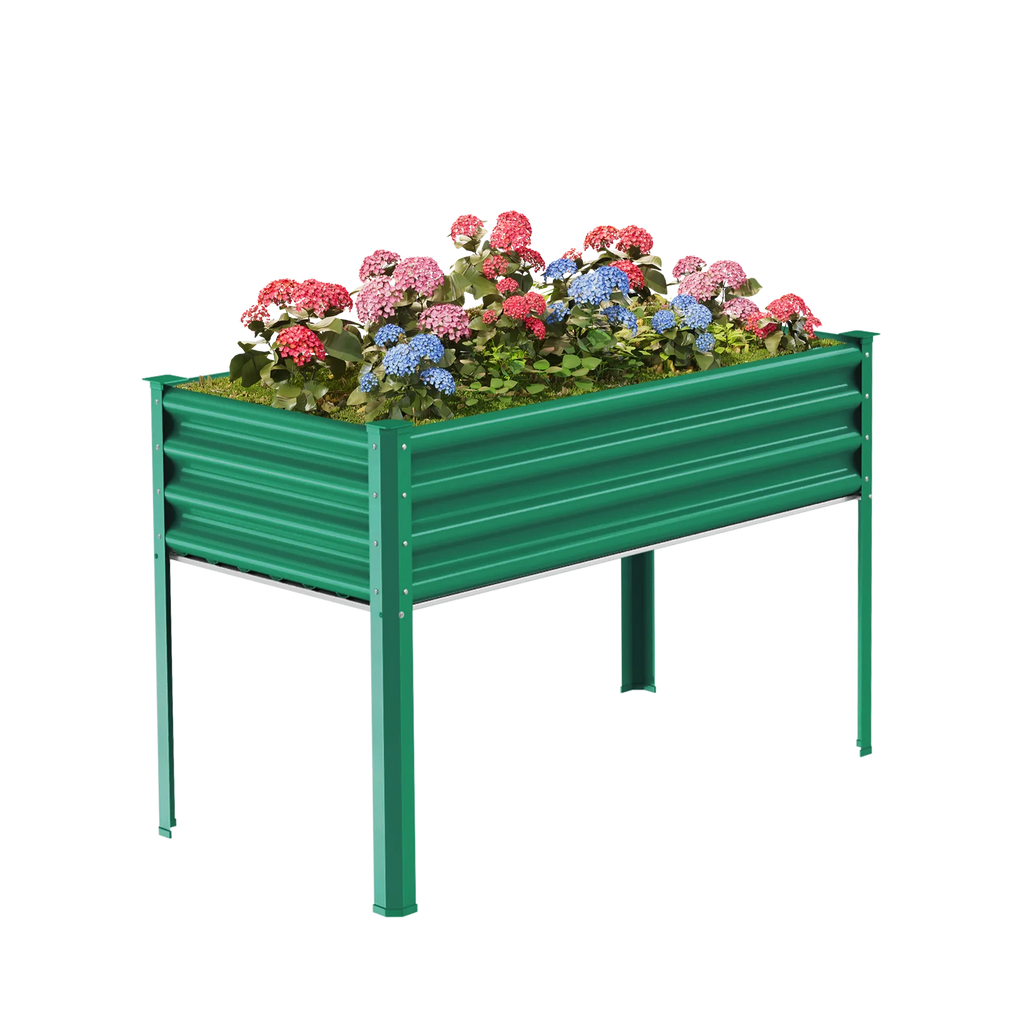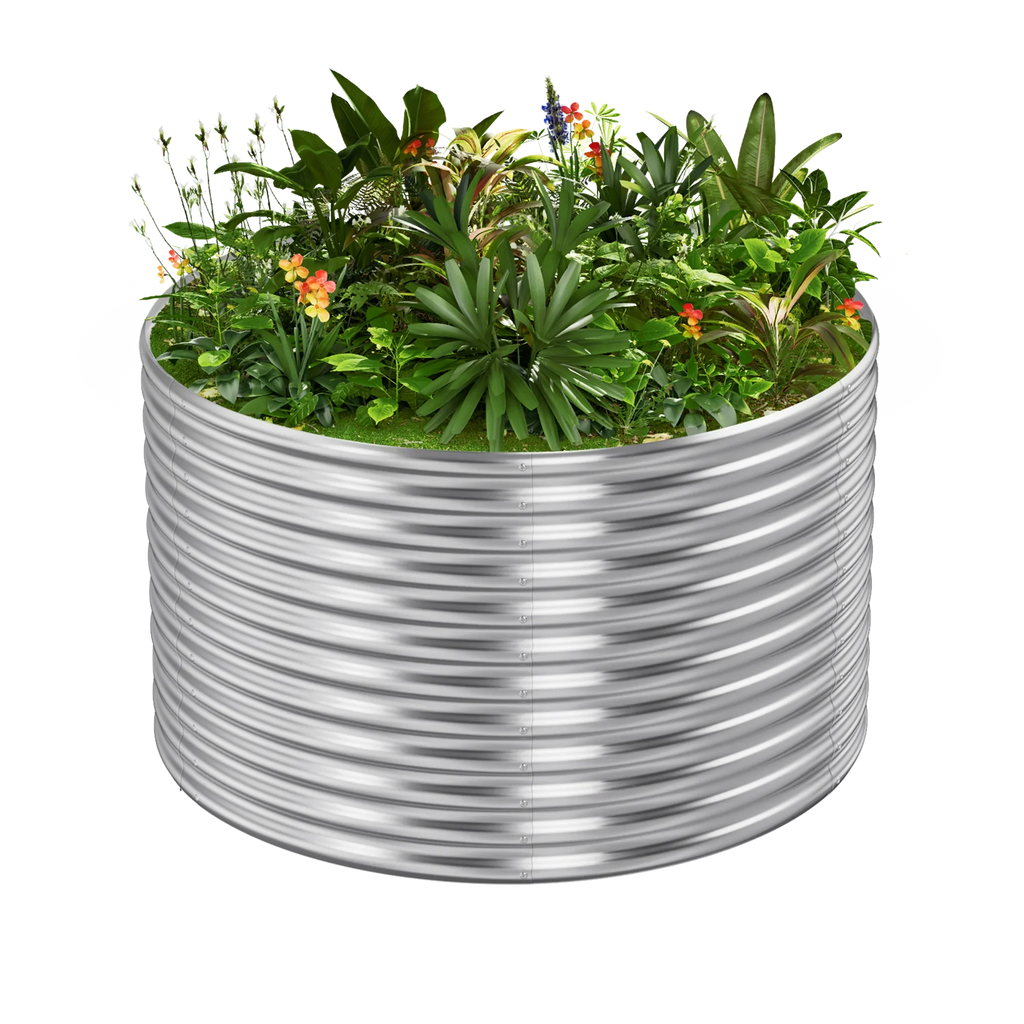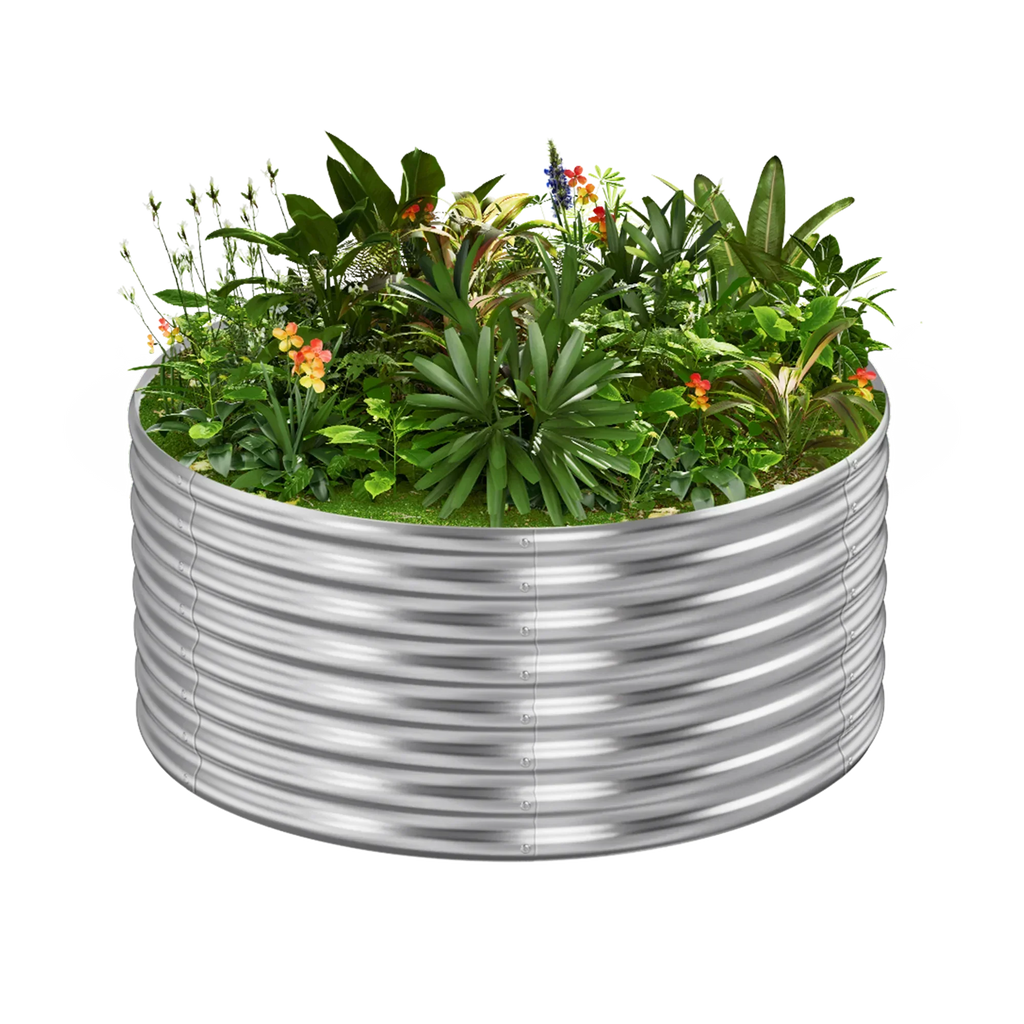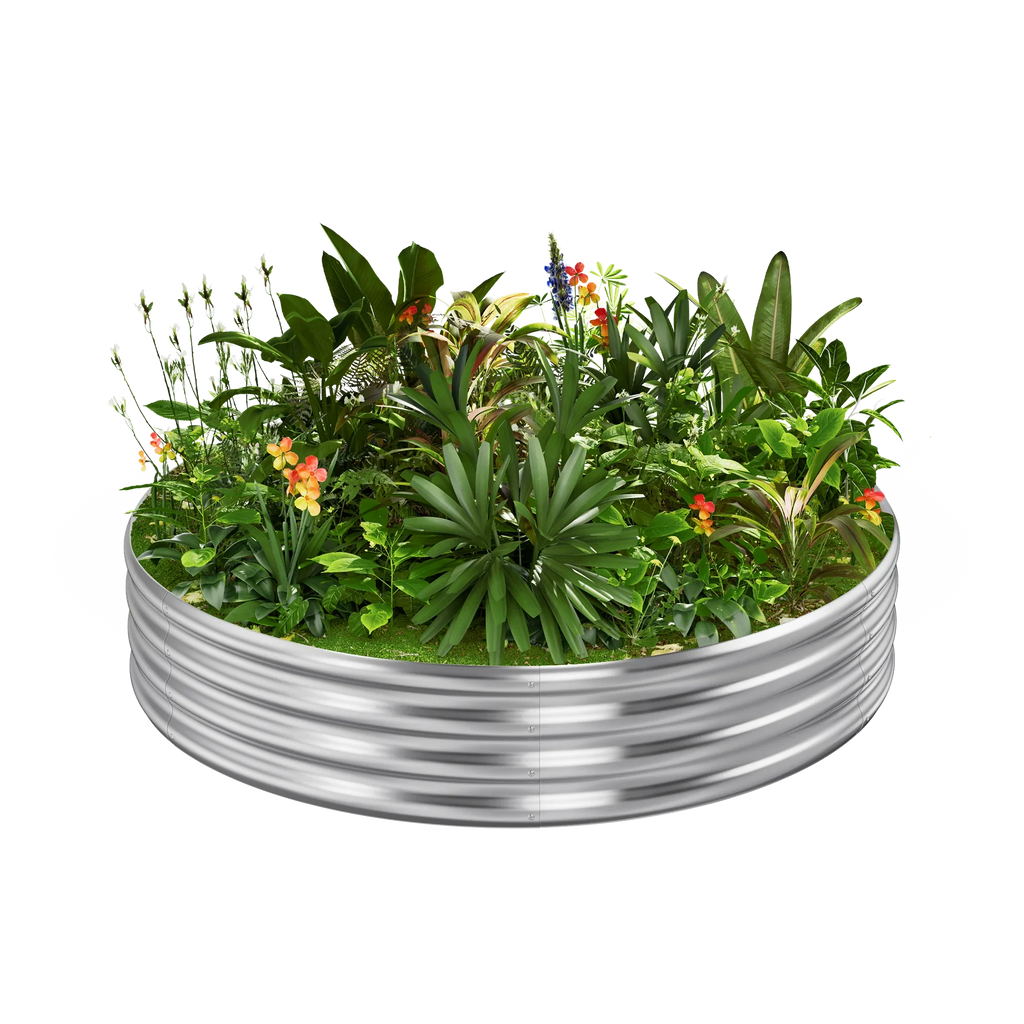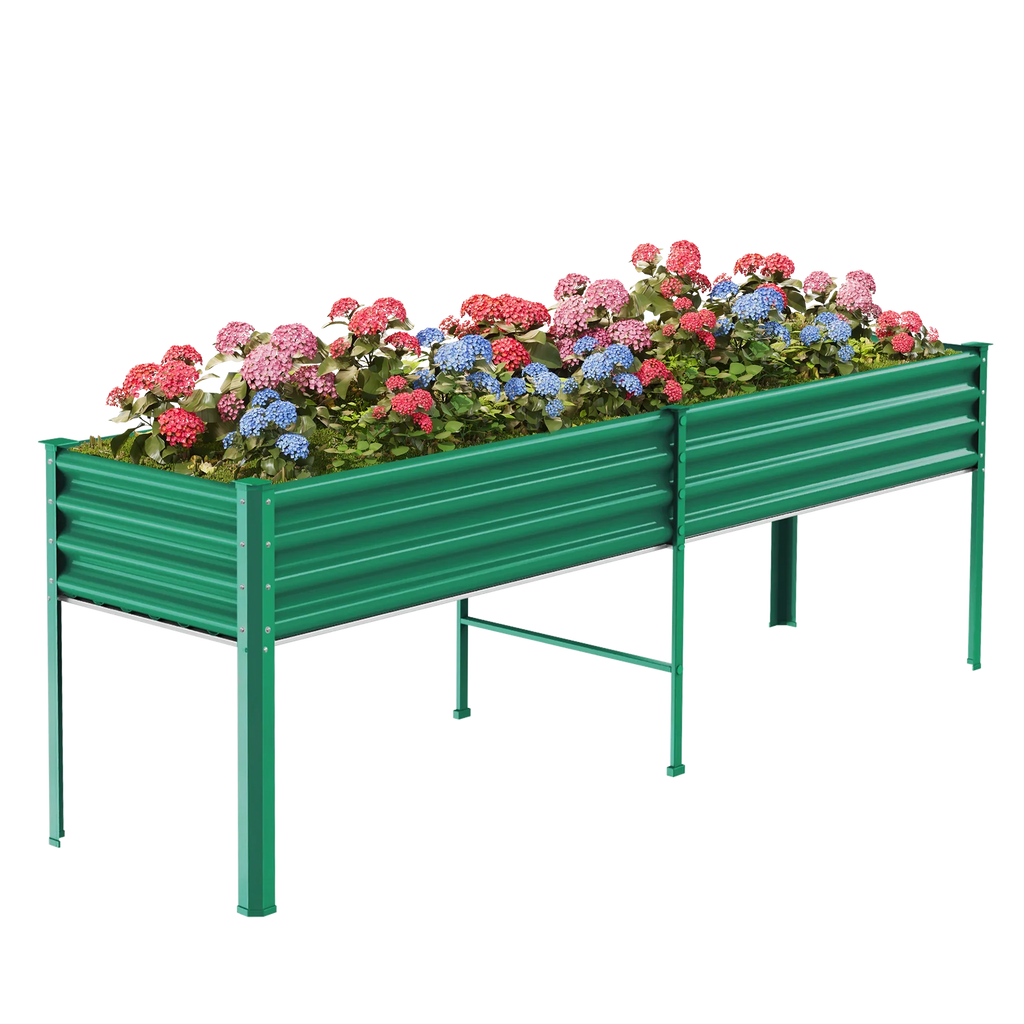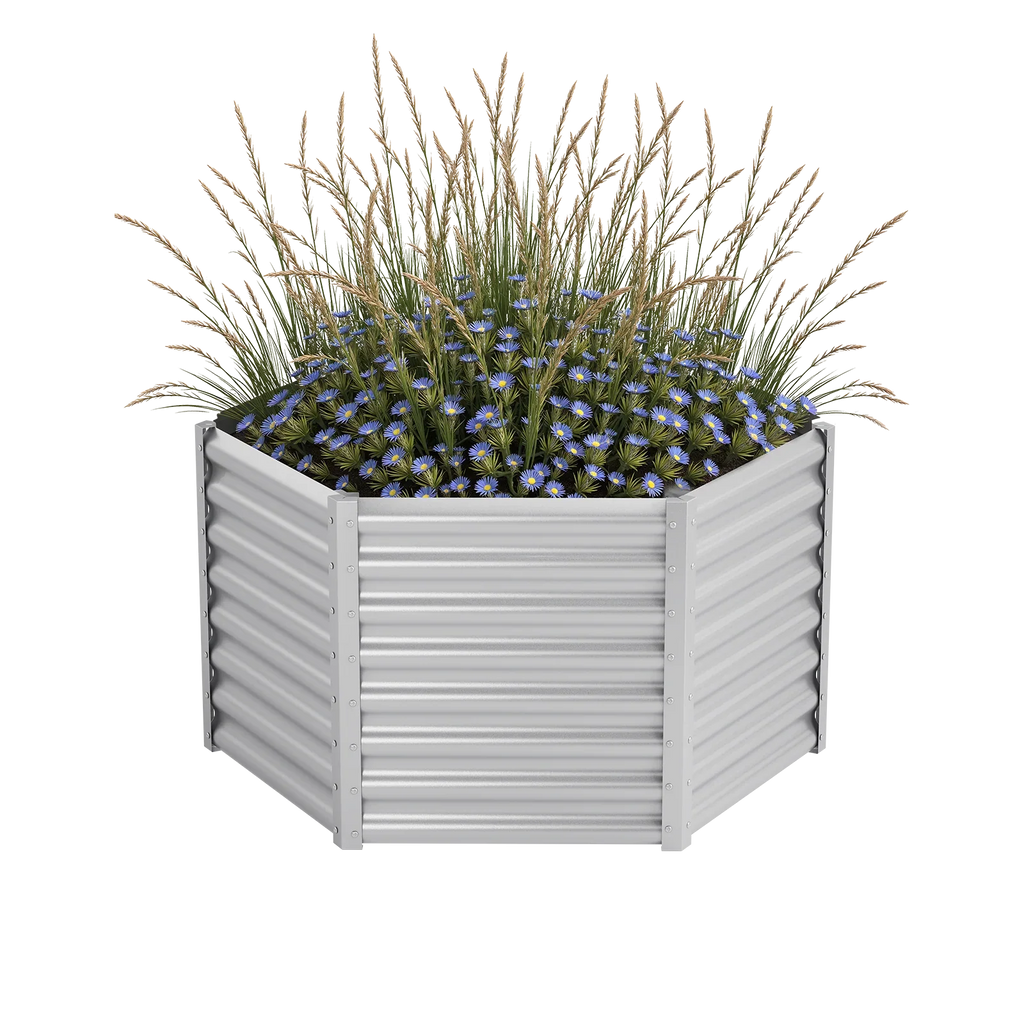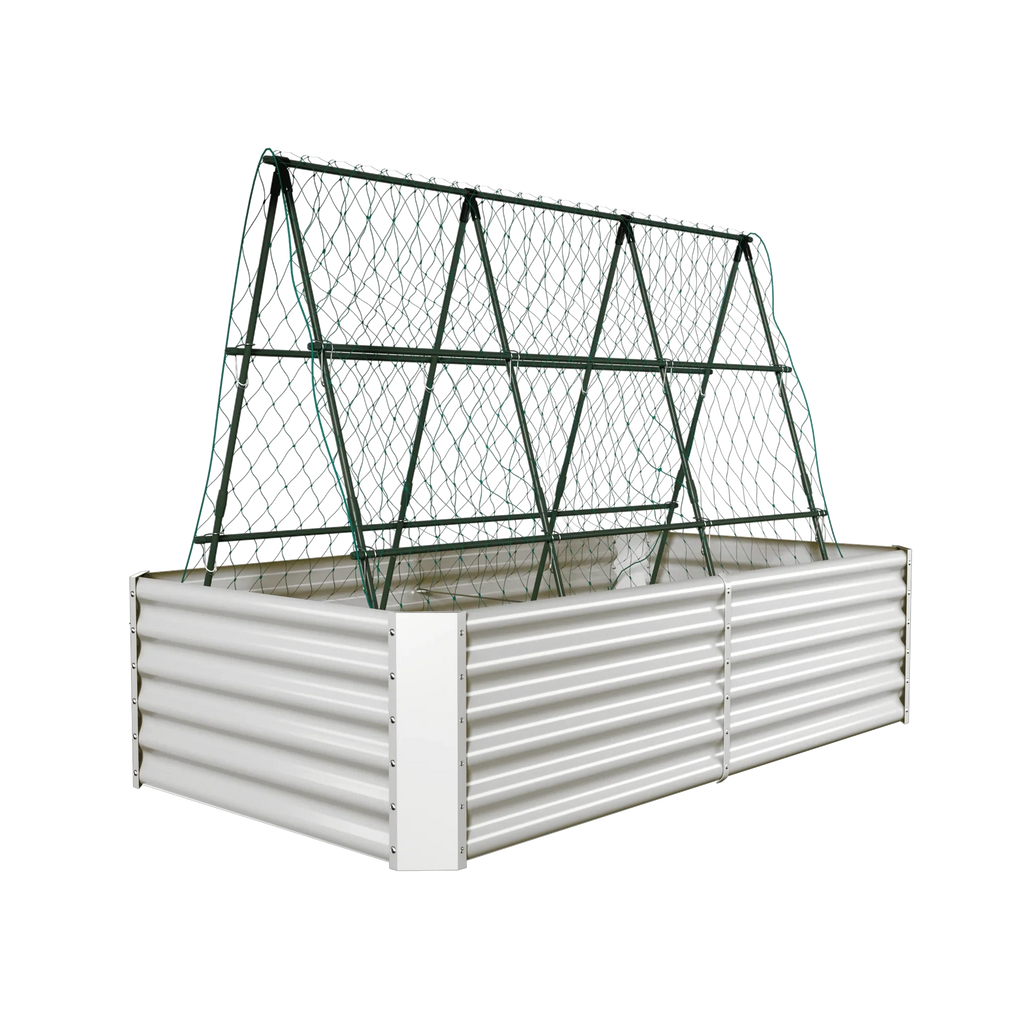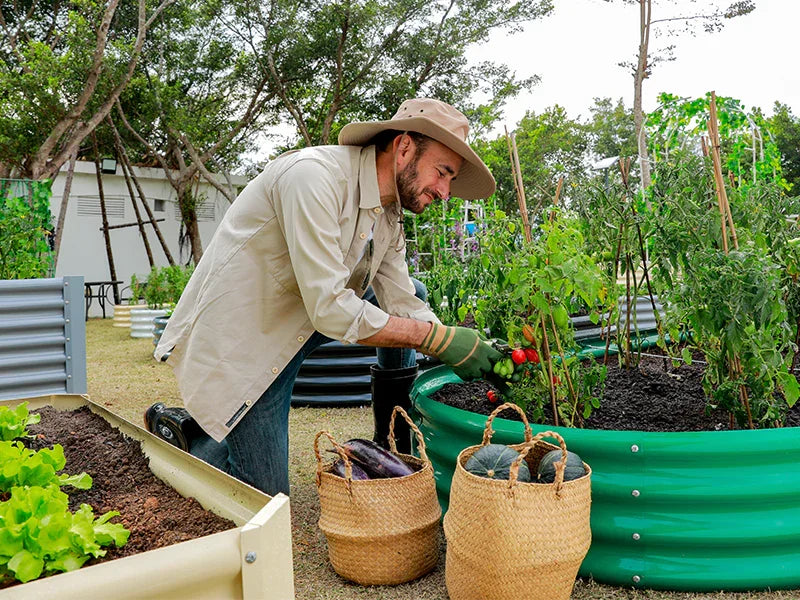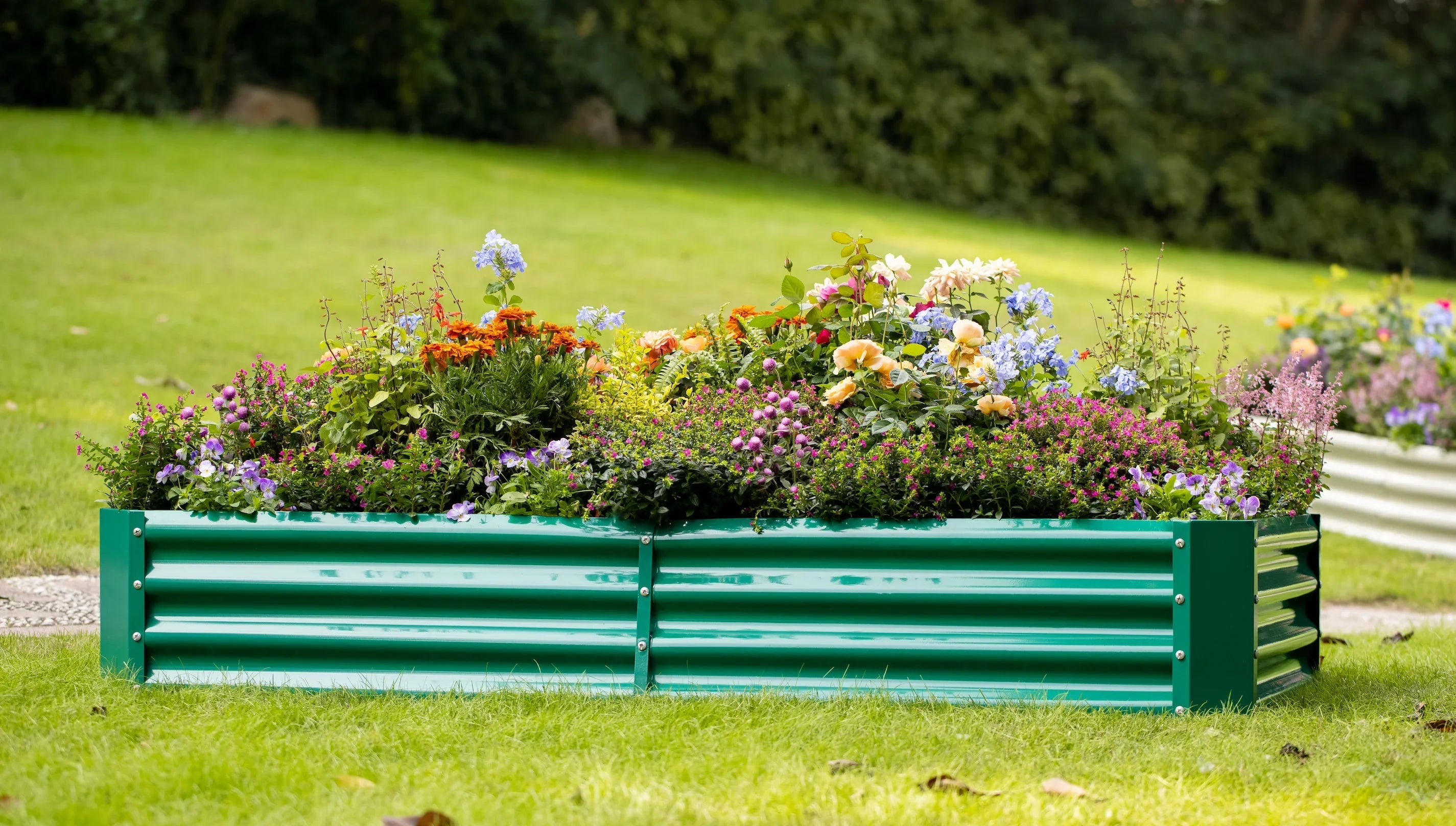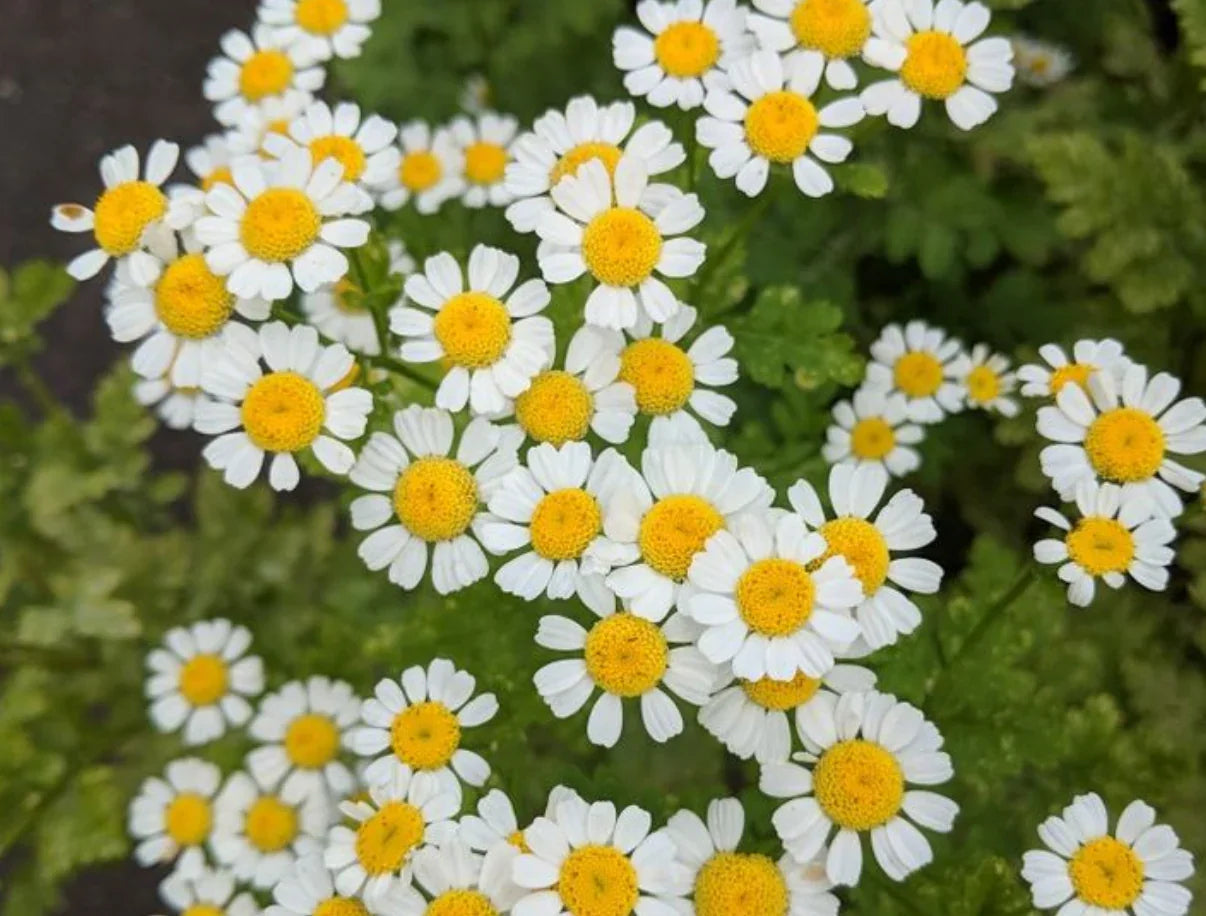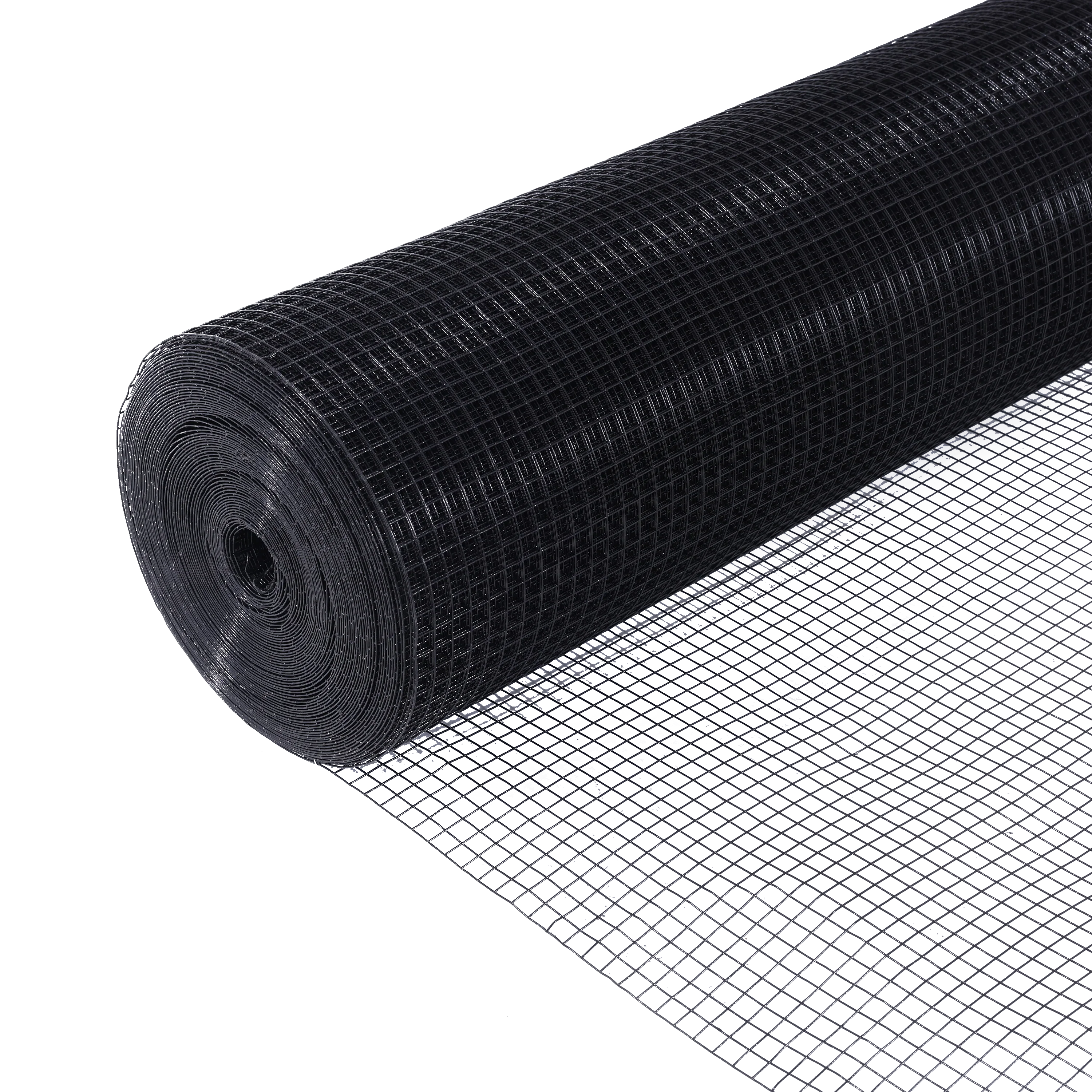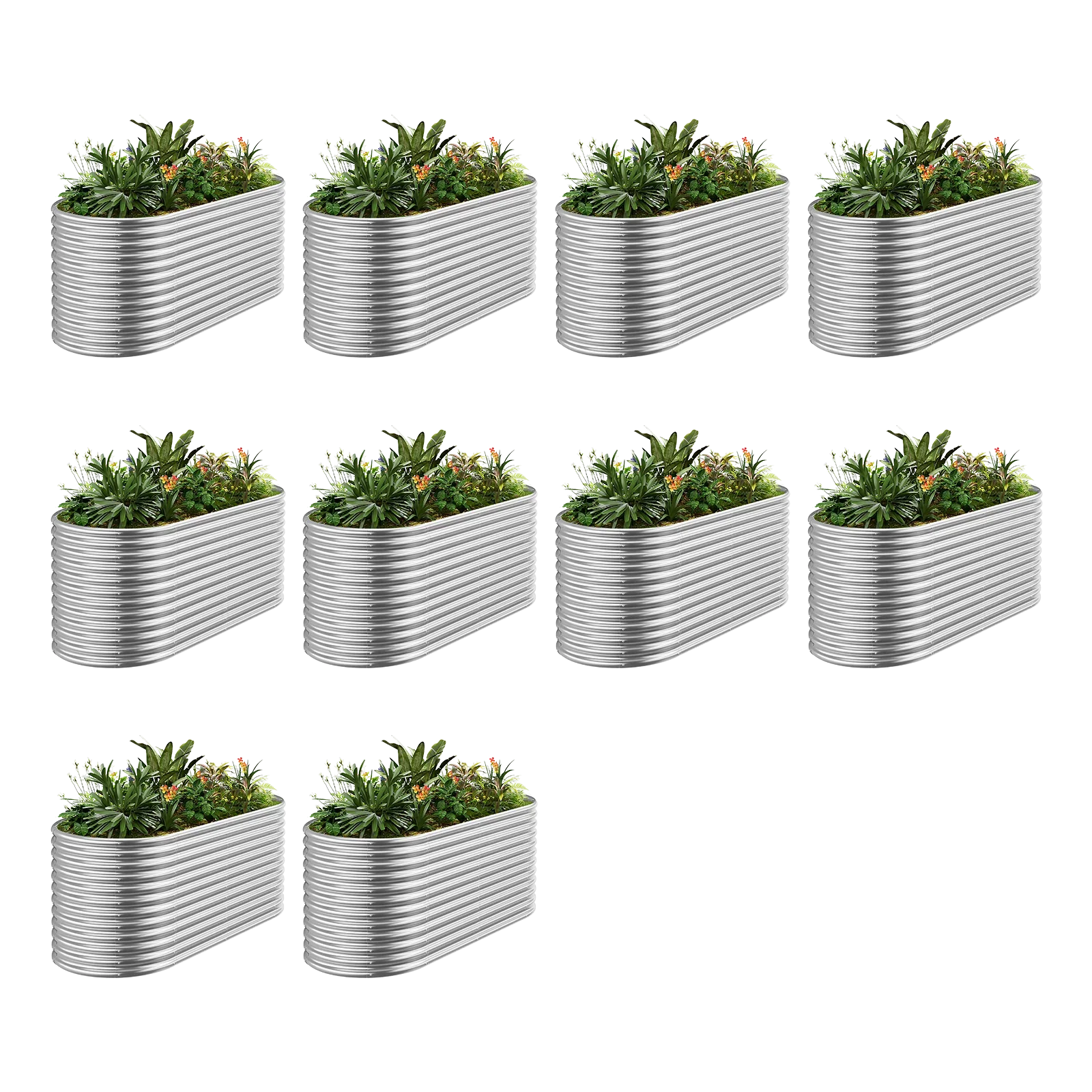Medicinal herbs are a wonderful addition to any garden, offering natural remedies for stress relief while adding beauty with their lush foliage and fragrant blooms. Growing these herbs in raised garden beds is ideal, as it ensures excellent drainage, customizable soil, and easy maintenance, making them perfect for beginner and seasoned gardeners alike. These herbs are not only therapeutic but also versatile, used in teas, tinctures, or aromatherapy to promote relaxation and well-being.
In this blog, we’ll explore five medicinal herbs to reduce stress that you can grow in raised garden beds. You’ll learn about their planting, care, and harvest requirements, as well as their stress-relieving benefits. We’ll also share practical tips to help you cultivate a calming herb garden with ease.
1. Chamomile
Chamomile is one of the easiest medicinal herbs to grow, renowned for its calming properties. Its delicate, daisy-like flowers are used to make soothing teas that reduce anxiety and promote sleep. Chamomile thrives in raised garden beds with well-drained, slightly acidic soil and full sun, though it tolerates partial shade.
· Planting: Sow seeds or transplant seedlings in early spring. Space plants 6–8 inches apart.
· Blooming & Harvest: Flowers bloom in early to mid-summer, ready for harvest when petals begin to droop. Dry the flowers for tea or use fresh.
· Care: Water regularly but avoid overwatering, as chamomile prefers slightly dry conditions. Pinch back young plants to encourage bushy growth.
· Stress Benefit: Chamomile’s mild sedative effects help ease stress and improve sleep quality.
Tip: Use a layer of organic mulch, like straw, to retain moisture and protect the shallow roots in raised beds.
2. Lavender
Lavender is a fragrant perennial herb prized for its stress-relieving aroma. Its purple blooms add beauty to raised beds while its essential oils are used in aromatherapy, sachets, or teas to promote relaxation. Lavender prefers full sun and sandy, well-drained soil, making raised beds an ideal environment.
· Planting: Plant seedlings or cuttings in spring after the last frost, spacing them 12–18 inches apart.
· Blooming & Harvest: Flowers bloom in mid to late summer. Harvest buds just before they fully open for maximum potency.
· Care: Water sparingly, as lavender is drought-tolerant. Prune annually after blooming to maintain shape and encourage new growth.
· Stress Benefit: Lavender’s scent reduces cortisol levels, easing anxiety and improving mood.
Tip: Mix sand or gravel into the soil mix to enhance drainage, as lavender dislikes wet roots.
3. Lemon Balm
Lemon balm, with its refreshing citrusy scent, is a vigorous perennial that helps calm the mind and uplift the spirit. Its leaves are used in teas, salads, or tinctures to reduce stress and improve focus. Lemon balm thrives in raised beds with rich, well-drained soil and full sun to partial shade.
· Planting: Start seeds or transplants in early spring, spacing plants 18–24 inches apart to accommodate their spreading habit.
· Blooming & Harvest: Leaves are harvestable from spring to fall, with peak flavor before flowering in mid-summer.
· Care: Water regularly to keep soil moist but not soggy. Trim frequently to prevent legginess and control spreading, as lemon balm can be invasive.
· Stress Benefit: Lemon balm’s mild sedative properties soothe nervous tension and promote relaxation.
Tip: Grow lemon balm in a sunken container within the raised bed to limit its spread while maintaining easy access.

4. Holy Basil (Tulsi)
Holy basil, or tulsi, is an adaptogenic herb revered in Ayurvedic medicine for its ability to combat stress and boost resilience. Its aromatic leaves are used in teas or culinary dishes. Holy basil thrives in raised beds with fertile, well-drained soil and full sun.
· Planting: Sow seeds or plant seedlings in late spring after the soil warms, spacing them 12–18 inches apart.
· Blooming & Harvest: Harvest leaves throughout the growing season, starting 6–8 weeks after planting. Pinch off flower buds to prolong leaf production.
· Care: Water consistently to keep soil moist. Fertilize monthly with a balanced organic fertilizer to support vigorous growth.
· Stress Benefit: Holy basil balances stress hormones, enhancing mental clarity and emotional stability.
Tip: Mulch with compost to maintain soil fertility and retain moisture in raised beds.
5. Passionflower
Passionflower is a striking perennial vine with exotic blooms and calming properties. Its leaves and flowers are used in teas or tinctures to relieve anxiety and insomnia. Passionflower grows well in raised beds with rich, well-drained soil and full sun to partial shade, where its vines can be trellised.
· Planting: Plant seedlings or cuttings in spring, spacing them 18–24 inches apart near a trellis or support.
· Blooming & Harvest: Flowers bloom in mid to late summer, with leaves and flowers harvestable throughout the season.
· Care: Water regularly but allow soil to dry slightly between waterings. Prune in late winter to control growth and encourage flowering.
· Stress Benefit: Passionflower’s sedative compounds reduce anxiety and promote restful sleep.
Tip: Install a small trellis in the raised bed to support passionflower’s climbing vines without overcrowding other herbs.
Tips for Growing Medicinal Herbs in Raised Beds
· Soil Preparation: Use a mix of 60% topsoil, 30% compost, and 10% sand or perlite for optimal drainage and fertility.
· Companion Planting: Pair herbs with similar needs (e.g., lavender and holy basil for sunny, dry conditions) to maximize space and health.
· Pest Control: Monitor for aphids or spider mites. Use neem oil or insecticidal soap for organic pest management.
· Harvesting: Harvest in the morning when essential oils are most concentrated for maximum therapeutic benefits.
· Winter Care: In colder zones, mulch perennials like lavender or bring annuals like holy basil indoors as potted plants.
Common Mistake: Overwatering can harm herbs like lavender and chamomile. Check soil moisture before watering to prevent root rot.
Final Thoughts
Growing medicinal herbs like chamomile, lavender, lemon balm, holy basil, and passionflower in raised garden beds is a rewarding way to reduce stress naturally while enhancing your garden’s beauty. These herbs are relatively easy to cultivate, with many being perennials that return year after year. Whether you sip chamomile tea, inhale lavender’s soothing scent, or brew tulsi for mental clarity, your raised bed herb garden will become a sanctuary of calm.






